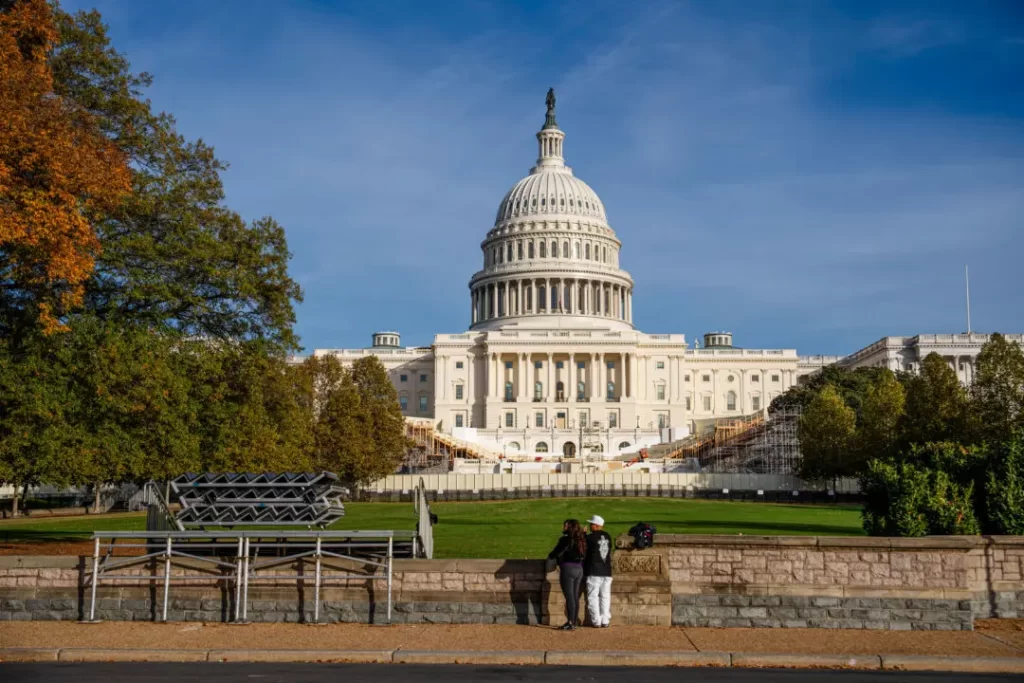
Three undecided House races are set to determine the final size of the GOP’s narrow majority in Congress, with implications for how the Republican leadership will handle key challenges in the upcoming year. While Republicans have secured 219 seats to Democrats’ 213, the undecided races in Iowa, California, and elsewhere remain critical as the party prepares for a divided Congress in 2025.
The narrow majority, which could be affected by upcoming special elections, will significantly influence House Speaker Mike Johnson’s ability to navigate issues such as government funding and the influence of the party’s right-wing faction. The situation will also impact decisions made by governors who will appoint senators to fill vacancies, especially with Vice President-elect JD Vance’s seat in Ohio and Florida Senator Marco Rubio’s potential move to a new position in Trump’s administration.
House Seat Shifts and Resignations
With several Republican lawmakers expected to join President-elect Donald Trump’s administration, the GOP’s slim House majority faces further challenges. Some of these vacancies have already been filled, with Trump nominating Florida Representative Matt Gaetz as attorney general, Representative Michael Waltz as national security adviser, and Representative Elise Stefanik for US ambassador to the United Nations. While Gaetz has already resigned his seat, Waltz and Stefanik are still serving in Congress, but their departures will trigger special elections, the timing of which remains uncertain.
These developments add more uncertainty to an already precarious GOP majority. The timeline for these special elections, including when the winners will be seated in Congress, will play a key role in maintaining Republican control and ensuring a smooth transition as the new Congress is sworn in on January 3, just 17 days before Trump takes office.
Senate Appointments and Considerations
The narrow House majority also factors into decisions surrounding Senate vacancies. Ohio Governor Mike DeWine is considering a number of Republican contenders to fill JD Vance’s Senate seat after he transitions to the vice presidency. However, filling Vance’s seat may be complicated by the GOP’s slim House majority. If a House member is elevated to the Senate, it could further thin the GOP’s ranks, creating challenges for maintaining control.
Similarly, Florida’s Marco Rubio, who has been nominated as Trump’s secretary of state, could leave his Senate seat vacant, prompting a similar process for a new appointment. Governors in both states will need to carefully consider the timing of these appointments, as well as their political ramifications.
Iowa’s 1st District
In Iowa’s 1st District, the race between GOP Rep. Mariannette Miller-Meeks and Democratic challenger Christina Bohannan remains unresolved, with Miller-Meeks leading by about 800 votes. The election has been closely contested since 2020 when Miller-Meeks won by just six votes. Following this year’s tight race, Bohannan’s campaign has requested a state-funded recount, which began earlier this week. Miller-Meeks, a first-term Congresswoman and Army veteran, has already declared victory, but the recount will ultimately determine the outcome.
California’s 13th District
In California’s 13th District, Republican Rep. John Duarte is locked in another tight race with Democrat Adam Gray, his 2022 challenger. Duarte, who has a narrow lead of 227 votes, faces a challenging recount in the district, located in the San Joaquin Valley. This district has long been one of the most competitive in the state. Duarte, a pistachio farmer, narrowly defeated Gray in 2022 by just four-tenths of a percentage point, a race that took weeks to be decided. With California’s slow vote count, the outcome of this race could still shift significantly.
California’s 45th District
In California’s 45th District, another tight race is unfolding between Republican Rep. Michelle Steel and Democratic challenger Derek Tran. Steel, who made history in 2020 as one of the first Korean American women elected to the House, is currently trailing by 314 votes. Tran, a first-time candidate and an Army veteran of Vietnamese descent, is vying to represent a district in Orange County that includes Little Saigon, a predominantly Asian American area. This race, too, is razor-thin and could determine the balance of power in the House.
Impact of the Remaining Races
These remaining undecided races in Iowa and California could have lasting impacts on the GOP’s majority in the House and influence the direction of the party as it prepares for a new Congress and President Trump’s second term. With a narrow majority, the GOP will need to carefully manage its internal factions, support key nominations, and navigate special elections that may reshape the landscape of Capitol Hill.
As the new Congress begins, all eyes will be on the final tallies and the special elections that could tip the balance of power and determine how effective the GOP can be in achieving its legislative goals.








